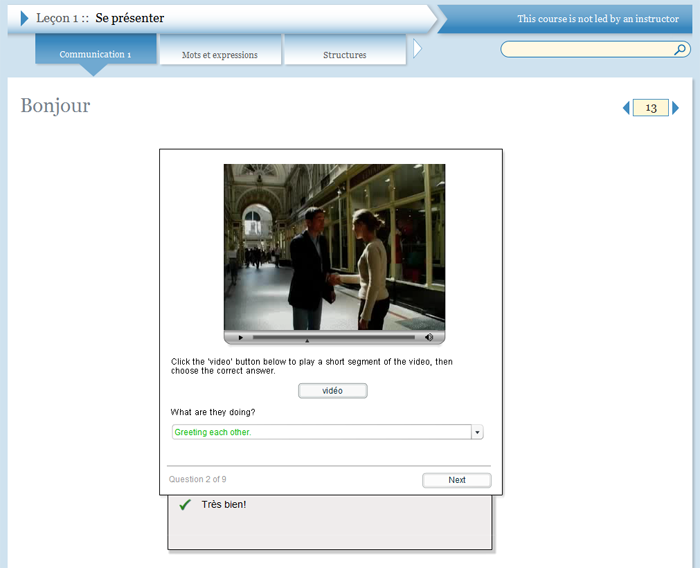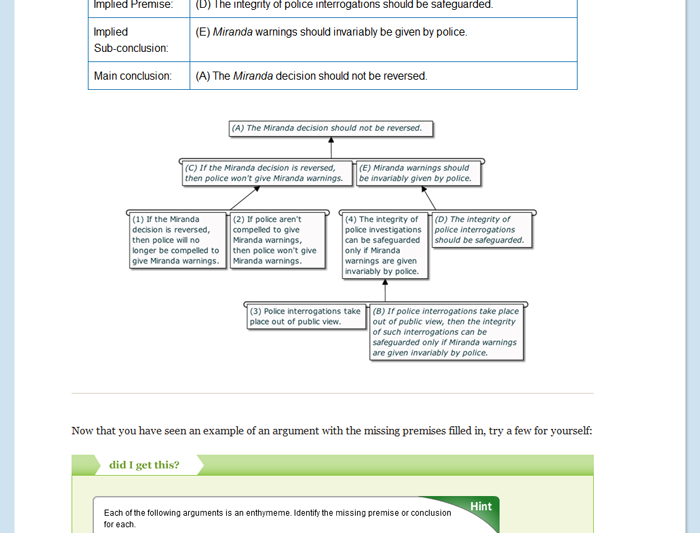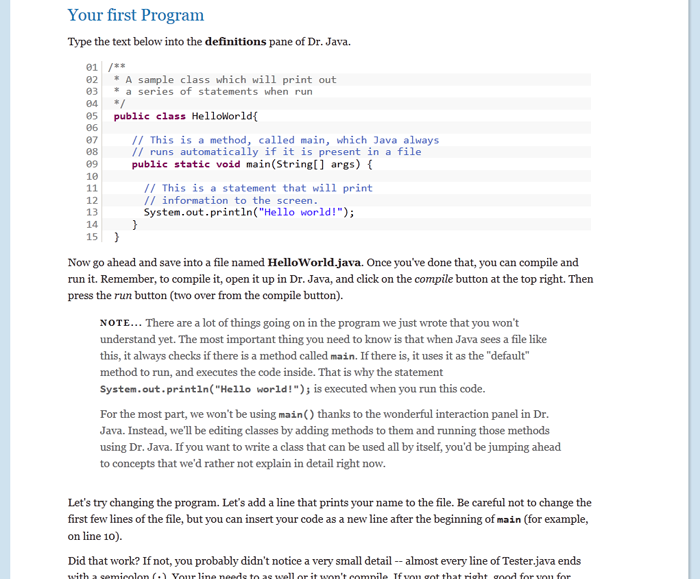Elementary French I is a carefully sequenced and highly interactive presentation of French language and culture in a media-rich course environment. The latest update includes an instructor-led version of the course with scored assessments for independent learners, and video shot in France and Québec with young professional actors.
In the instructor-led course, you will have a weekly synchronous Zoom class (60-minutes) in which you will get the opportunity to practice your French speaking, grammar, and vocabulary skills with your peers. You will also receive weekly emails from your instructor with suggested pacing for moving through the lesson materials. Additionally, you will be able to email your instructor with any questions you may have about the course.
To successfully use this course, you should be a motivated adult student (aged 18 and up) with a sincere desire to learn about French language and francophone cultures, and be comfortable with computer technologies. Elementary French 1 is a great place to brush up on your French or begin your French learning journey from scratch.
To receive a Certificate of Completion in this course, you will need to score at least 70% on each of the the end of lesson assessments. To be awarded a Certificate with Distinction, you will need to score at least 90% on each of the end of lesson assessments. Attending the weekly course meetings and doing the auto-graded exercises throughout each lesson will help prepare you for success on the end of lesson assessments.The time commitment will typically range from seven to nine hours a week.
Click here for information on instructor-led language courses
Additional software or materials required:
You will be required to use videoconferencing software, such as Zoom, which you will be able to use for free with the link that your instructor provides you.
Topics covered:
Introductions, Origins, Studies, Age, Appearance, Personality, Preferences, Activities, Time, The Family, The Home, Work, Meals, Restaurants, and Shopping.
Each lesson opens with a video dramatization that sets the context for the lesson. Parts of the video are then replayed in a variety of interactive activities and tutors. Each video in the course was written specifically to serve as the foundation for the lesson in which it is used. These high quality videos were produced with French actors on location in France (Nantes) and Quebec (Montreal) so the speech, movements and contexts are authentic.
Lesson structure:
The beginning of each lesson is always a set sequence, from simple recognition of language in a video dialogue, through explicit learning of grammar and pronunciation, to written and spoken production of variations on that language. After this ordered beginning, a number of activities are offered to the student in which the language learned is used in understanding new texts, sounds or videos or in creative production (conversation or writing).
If you still have questions about whether to sign up for French 1 or 2, you can contact Natalie Amgott (namgott@andrew.cmu.edu).






